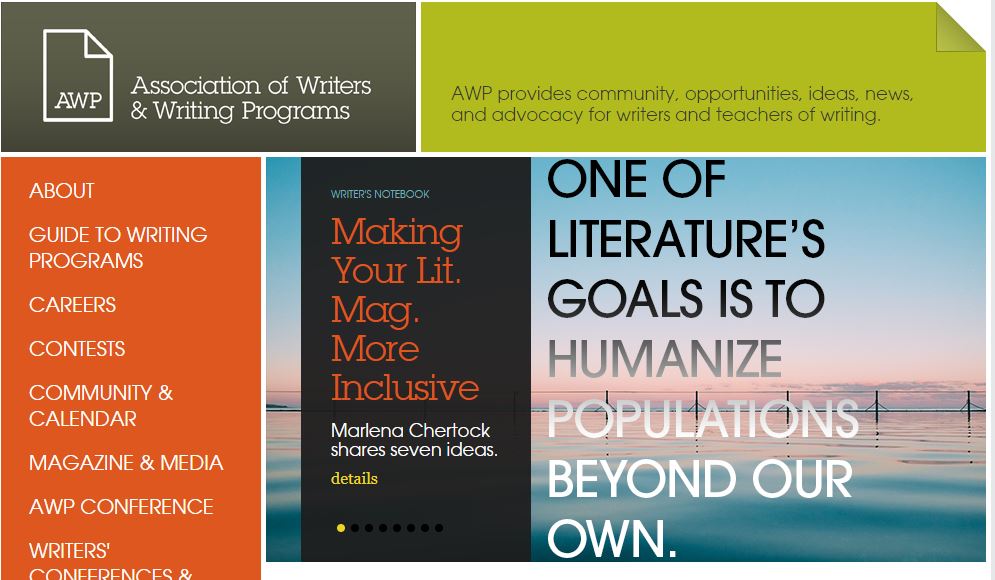After having this important conversation at AWP 2017 on how to make writing communities more inclusive to all of us, I decided to write up excerpts of our panel discussion and offer tips to editors of literary magazines. It was published yesterday in AWP’s The Writer’s Notebook.
This is by no means an exhaustive list. But it’s a start. Feel free to add on your ideas and tips in the comments or social media.
Below are a few highlights from “How to Make Your Literary Magazine More Inclusive.”
First, ensure your journal and submission process is fully accessible.
Second, more journals should feature voices of disabled writers, writers of color, queer writers, and others who have historically been and continue to be marginalized.
Third, ask if writers can find safe spaces for their work in your journals. Take a long, hard look at magazine mastheads. Does everyone look the same? Are there diverse ages, races, genders, sexual identities, abilities, and more? If not, why? Editors should be hiring diverse candidates as their interns, readers, and editors. For example, peruse @writersofcolor and @disabledwriters to find writers of color and disabled writers available to write! And follow conversations on social media, including these hashtags: #blacklit/blackauthors, #criplit, #indigenouslit, #latinowriters, #ownvoices, #queerlit, and more.
Fourth, editors can consider guest judges as a way to bring in different gatekeepers.
Fifth, let diverse writers know you want their work. Editors have been doing this through submission guidelines, manifestos, mission statements, editor’s notes, essays, or even through conversations on social media. There are many places where writers and editors discuss inclusive, representative, diverse literature, including: #blacklit, #criplit, #indigenouslit, #latinowriters, #ownvoices, #queerlit, We Need Diverse Books, and more.
Sixth, produce themed issues surrounding certain voices, identities, or political/social movements. Special themed issues can seem alienating, so it’s important to let writers know your publication is open to their writing at all times, if, in fact, it is.
Seventh, editors and writers must be brave. Small, positive shifts can have big consequences.
Read the full article here.
